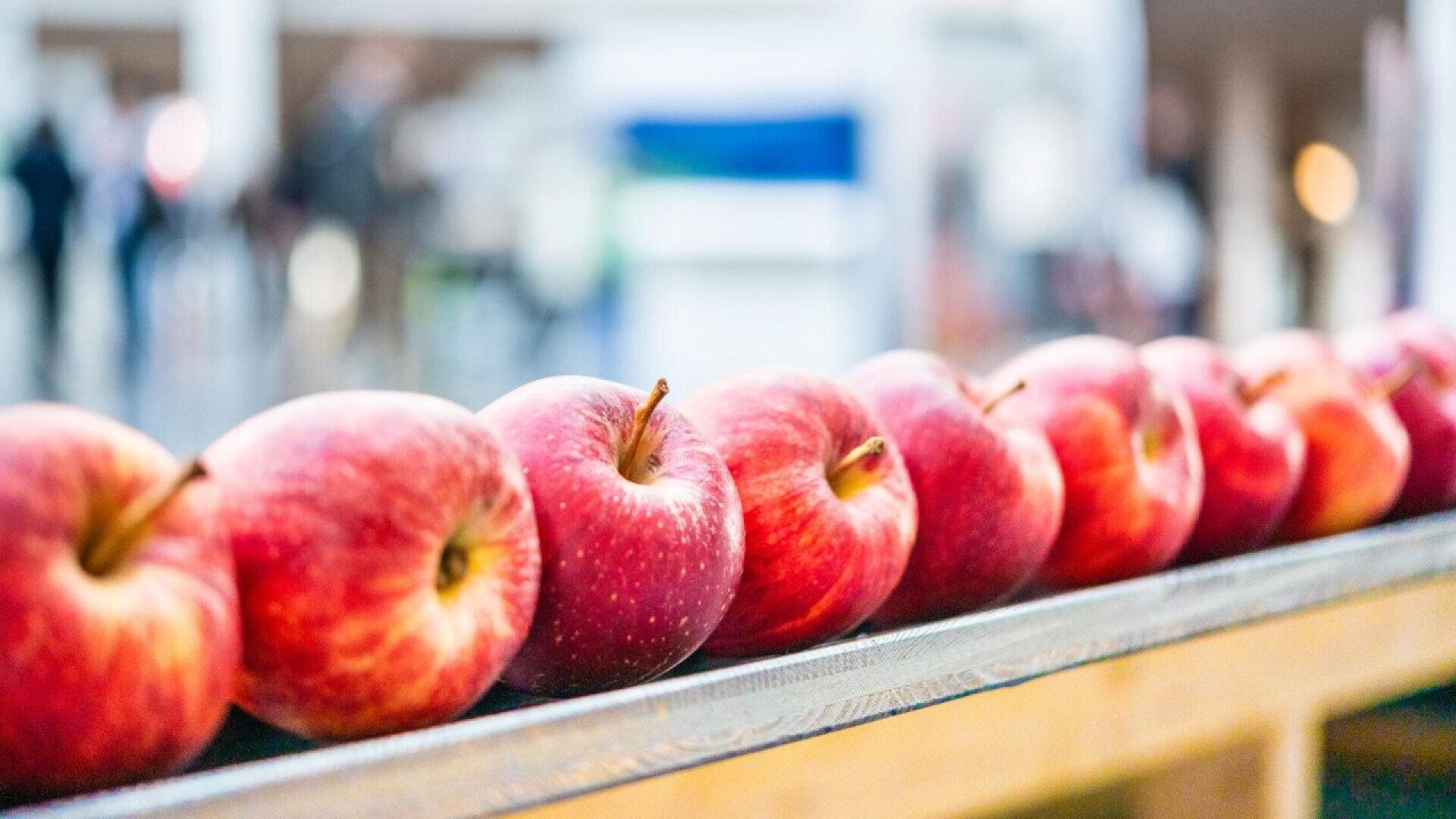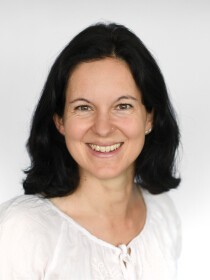Sector discusses initiatives to foster domestic fruit production
Fruchtwelt Bodensee expecting 350 exhibitors – Spike in market prices and below-average harvest volume for Lake Constance dessert apples– Enormous development potential for pear cultivation – Trade fair with great significance for policymakers
Friedrichshafen – There are many ways to support and maintain the production of food in Germany and the region, such as by adding value through business analysis, cultivating resilient pear varieties, digitally transforming the industry, and implementing agricultural photovoltaic technologies. In the run-up to Fruchtwelt Bodensee (February 23 to 25, 2024), it is clear that the political framework conditions in Germany are putting significant strain on fruit-producing family businesses, which are labor-intensive and heavily dependent on weather conditions. After a high-yield harvest in 2022, some 13 percent fewer dessert apples were harvested on Lake Constance this year, amounting to a total of 226,000 tons. However, the fruit is currently able to command higher market prices due to a smaller harvest in Germany and Europe. It is notable that the German production of dessert pears has increased by three percent to 37,000 tons, and in the Lake Constance region, there was a 13 percent increase in the pear harvest compared to the previous year, with a very promising market outlook.
Fruchtwelt Bodensee 2024 is set to achieve a high level of participation with 350 exhibitors from 15 countries. “Regardless of the economic situation in the sector, we serve as a marketplace and a crucial international platform for information and networking. The attendance at the fair by federal and state ministers of agriculture Cem Özdemir and Peter Hauk underscores the great importance that Fruchtwelt Bodensee has in the industry for fruit growers, farmers, and distillers,” says Messe Friedrichshafen CEO Klaus Wellmann and Project Manager Sharon Kommer. The 42nd Lake Constance Fruit Growing Days supporting program will feature presentations by experts organized in collaboration with industry partners. At the keynote event and subsequent panel discussion, Baden-Württemberg’s Minister of Agriculture Peter Hauk and representatives from fruit growing, sales, and society will engage in a discussion of the key variables of the value chain that can foster sustainable and regional fruit production. “In recent years, agricultural businesses have faced an excessive number of restrictions, encumbrances, and bureaucratic regulations. The increase in energy costs, the high and rising minimum wage, and heightened harvest risks are placing too great of a burden on fruit-growing family businesses. Although revenues for dessert apples have also risen for producers since September 2023, the increase has largely been directly offset by higher production and marketing expenses, and fruit growers have not yet been able to recover these costs. The increasing competition with other European countries and the excessive price pressure are causing uneconomical crops and farms to be gradually abandoned. There is a threat of an increasing relocation of previously domestic fruit production to other European countries and even greater dependence on imports,” explain Erich Röhrenbach and Thomas Heilig, the two chairmen of the Lake Constance Fruit Region Association (Verband Obstregion Bodensee), adding: “We strive to achieve a sustainable balance between the economic prosperity of local businesses, environmental conservation, and the needs of society in the years to come.”
At the Friedrichshafen trade fair, presentations will delve into various factors that affect production, including the cultivation of resilient plant varieties that are already undergoing testing in model environments. A study on the carbon footprint of Lake Constance apples is of particular interest. Refrigeration plays a major role here. The findings of the Constance Fruit-Growing Competence Center (Kompetenzzentrum Obstbau Bodensee, KOB), which has tested sustainable refrigeration systems of the future under practical conditions for the first time and will share its experiences in a presentation, are therefore also important. The KOB is also summarizing the initial results of its study in the agrivoltaic test facility, which investigated the question of whether and with which apple varieties healthy growth and high-quality fruit yield are possible.
Cultivation of pears with potential
Renowned fruit market expert Helwig Schwartau advocates for boosting the production of pears: “The sales potential in the German pear market is not being exhausted – which pear varieties should you plant?” is the title of his presentation. At present, German pears meet only 20 percent of domestic demand, and the food retail trade would like to see greater continuity in the supply of German pears. The figures speak for themselves: At 1.7 million tons, around 13 percent fewer table pears were harvested across Europe than in the previous year, with Germany producing 37,000 tons. In the Lake Constance region, the harvest of dessert pears reached 8,000 tons, marking a 12 percent increase from the previous year, with good price trends for producers.
Digital transformation: research into groundbreaking developments
The topic of digital transformation is becoming increasingly important, especially in view of the constant rise in the minimum wage. “It is estimated that around 600 working hours per hectare of pome fruit plantation are required per year and, realistically, the minimum wage will soon be 14 euros per hour,” calculates Dr. Hermann Gabele, Head of the Lake Constance District Agricultural Office, emphasizing: “The digital transformation is opening up many advantageous opportunities for farmers and the agricultural industry as a whole. Digitalization has the potential to optimize agricultural processes, reduce environmental impact, and heighten the competitiveness of farms, particularly those involved in labor-intensive special crops and pome fruit cultivation. I predict that the pome fruit sector will see advancements in digital and automated technologies in the near future.” On the Sunday of the trade fair, a series of presentations will showcase existing possibilities and ongoing research efforts into other options.
Orchard meadows provide fine wines in challenging times
Rising bureaucracy, a limited regional harvest due to frost damage, soaring gasoline prices, and the associated high costs for bottles: Small fruit distillers are facing major challenges, and what is being asked of policymakers is also clear: “One of the topics under discussion is a potential quota increase from 300 to 500 liters in order to improve profitability,” reports Andreas Metzler, regional chairman of the Association of Small and Fruit Distillers of South Württemberg-Hohenzollern (Verband der Klein- und Obstbrenner Südwürttemberg-Hohenzollern), adding: “Our ecologically valuable orchards yield delicious fruit for us. Distillation is an important instance of cultural heritage that we continue to cultivate.” The association will thus be presenting at its booth at Fruchtwelt Bodensee the exquisite wines of its members who have received gold and silver awards at state competitions for brandies and liqueurs. “Experimenting with different flavors is a fascinating exercise, and there is growing interest among the younger generation in getting involved in production once again. This trend is evident in the rising enrollment of students in distillery specialist programs, for example,” reports Metzler.
Prices and opening hours
Fruchtwelt Bodensee will be open from February 23 to 25, 2024, from 9 am to 5 pm each day. Day tickets cost 22 euros but will also be available online for 18 euros. Further information and an overview of the lecture program at: www.fruchtwelt-bodensee.de and https://www.instagram.com/fruchtwelt.bodensee/


